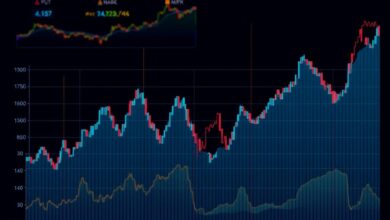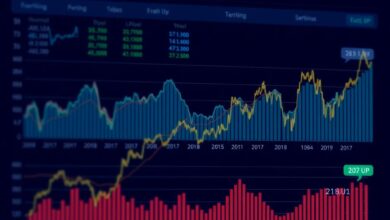Top finance books every investor should read

Begin your journey into the world of investing with “The Intelligent Investor” by Benjamin Graham. This classic lays a solid foundation for understanding value investing, emphasizing the importance of thorough analysis and long-term strategies. Graham’s insights will guide you through market fluctuations, making it a pivotal choice for personal growth.
Next, consider “A Random Walk Down Wall Street” by Burton Malkiel. This work demystifies stock market trends and presents a compelling argument for index investing. Malkiel’s approach not only educates but also empowers readers to make informed decisions, benefiting from the wisdom of seasoned experts in the field.
Another key title is “Rich Dad Poor Dad” by Robert Kiyosaki. This book shifts the focus from traditional views on wealth to innovative financial education that fosters entrepreneurial thinking. Kiyosaki’s contrasting perspectives on money management challenge conventional beliefs, inspiring readers to reshape their financial futures.
“Thinking, Fast and Slow” by Daniel Kahneman explores behavioral economics and decision-making processes that affect investment choices. Understanding these psychological factors is crucial for any aspiring financier aiming for success in a complex environment.
Finally, “The Little Book of Common Sense Investing” by John C. Bogle distills the essence of prudent investment strategies into accessible language. Bogle’s emphasis on low-cost index funds encourages readers to think critically about their investment approaches while cultivating a mindset geared towards sustained wealth accumulation.
Top Investment Classics
Consider “The Intelligent Investor” by Benjamin Graham, a seminal work that offers profound insights into value investing. Graham’s principles of risk management and long-term strategy remain relevant, guiding countless investors toward stability and growth.
“Common Stocks and Uncommon Profits” by Philip Fisher is another classic. Fisher emphasizes the importance of qualitative analysis, encouraging readers to assess a company’s management and future potential, which cultivates a deeper understanding of market dynamics.
- “A Random Walk Down Wall Street” by Burton Malkiel: This book challenges conventional wisdom, presenting the idea that markets are efficient and difficult to beat consistently. It’s essential for grasping modern investment theory.
- “Security Analysis” by Benjamin Graham and David Dodd: A rigorous exploration of fundamental analysis techniques. It’s an in-depth resource for anyone serious about stock evaluation.
- “One Up On Wall Street” by Peter Lynch: Lynch shares his investment philosophy, focusing on the advantages individual investors have over institutional players. His approach promotes personal growth through informed decision-making.
“Market Wizards” by Jack Schwager compiles interviews with top traders, revealing their strategies and thought processes. The diverse perspectives offer invaluable learning opportunities for aspiring market participants.
- “The Little Book of Common Sense Investing” by John C. Bogle: Advocating for low-cost index funds, Bogle’s philosophy highlights the benefits of simplicity in portfolio management.
- “Thinking, Fast and Slow” by Daniel Kahneman: While not exclusively about investing, this work provides critical insights into behavioral economics that can impact decision-making in financial contexts.
Each of these classics contributes to a solid foundation in investment knowledge, equipping individuals with tools for informed choices while promoting continuous learning and personal development in their financial journeys.
Modern Strategies and Trends
Consider incorporating quantitative investing into your portfolio management approach. This method leverages mathematical models to identify investment opportunities, allowing for data-driven decisions that minimize emotional biases. Books like “Quantitative Momentum” by Wesley Gray provide valuable insights from experts in this field.
The rise of ESG (Environmental, Social, and Governance) investing signifies a shift towards sustainability. Investors are increasingly prioritizing companies with strong ethical practices. Understanding the implications of ESG criteria can enhance your strategy, leading to personal growth in ethical investment choices.
Behavioral finance is another crucial area to explore, revealing how psychology influences market trends. Richard Thaler’s work offers profound learning on investor behavior and decision-making processes that deviate from traditional economic theories. Recognizing these patterns will sharpen your investment acumen.
Utilizing robo-advisors is becoming more prevalent among tech-savvy investors. These automated platforms provide tailored portfolio management at a lower cost, making professional insights accessible without significant capital. Embrace technology to optimize your investment strategies efficiently.
The trend towards alternative investments, such as cryptocurrencies and real estate crowdfunding, presents new avenues for diversification. Understanding these asset classes’ risks and rewards can enhance your strategic framework, providing additional layers of opportunity.
Lastly, continuous networking within investment communities can yield invaluable insights. Engaging with experts allows for the exchange of ideas and strategies that may not be found in literature alone. Attend seminars or join online forums to expand your understanding further.
Behavioral Finance Insights
Engage with “Thinking, Fast and Slow” by Daniel Kahneman to grasp the dual systems of thought that drive decision-making. This book provides profound insights into cognitive biases affecting investment choices. Understanding these biases can catalyze personal growth by promoting critical evaluation of one’s financial strategies.
“Misbehaving: The Making of Behavioral Economics” by Richard Thaler offers a compelling look at how psychological factors influence economic behavior. Thaler’s research serves as an educational tool for recognizing irrational tendencies in market participants, equipping readers with tools to mitigate impulsive decisions.
Incorporate lessons from “Nudge” by Thaler and Cass Sunstein, which illustrates how subtle prompts can guide better financial choices without restricting freedom. This work emphasizes the role of choice architecture in enhancing decision-making processes, advocating for thoughtful design in investment approaches.
Experts highlight the significance of emotional intelligence in finance. Recognizing emotions such as fear and greed can lead to more calculated actions during market fluctuations. Developing self-awareness can be transformative, enabling investors to maintain composure amidst volatility.
Explore “The Psychology of Money” by Morgan Housel for valuable anecdotes linking behavior and wealth. Housel’s narratives encourage reflection on personal attitudes towards money, fostering deeper understanding of one’s own motivations and values in investing.
Finally, consider engaging with behavioral finance podcasts or online courses that delve deeper into these concepts. Continuous education in this field can facilitate not only informed investment strategies but also enhance overall financial literacy.
Practical Portfolio Management
Consider employing the principles outlined in “The Intelligent Investor” by Benjamin Graham. This classic provides a robust framework for evaluating securities and emphasizes a disciplined approach to portfolio construction. Focus on risk management as a core aspect, ensuring your asset allocation aligns with your financial goals.
“A Random Walk Down Wall Street” by Burton Malkiel offers valuable insights into the effectiveness of various investment strategies. Pay attention to the discussion on index funds, which can simplify your investment choices while enhancing diversification.
Implement regular reviews of your portfolio, adjusting allocations based on performance and changing market conditions. Use tools like Monte Carlo simulations to assess potential outcomes and stress-test your investments under different scenarios.
Prioritize continuous learning through resources like online courses or seminars focused on portfolio management techniques. Engaging with experienced professionals can also provide you with unique perspectives that enhance your understanding of market dynamics.
Stay informed about economic indicators that influence asset prices. Regularly analyze reports from reliable sources and adapt your strategies accordingly to maintain an edge in decision-making.
Lastly, consider behavioral biases that may impact your choices. Reading “Thinking, Fast and Slow” by Daniel Kahneman can help identify these tendencies, allowing for more rational investment decisions over time.







